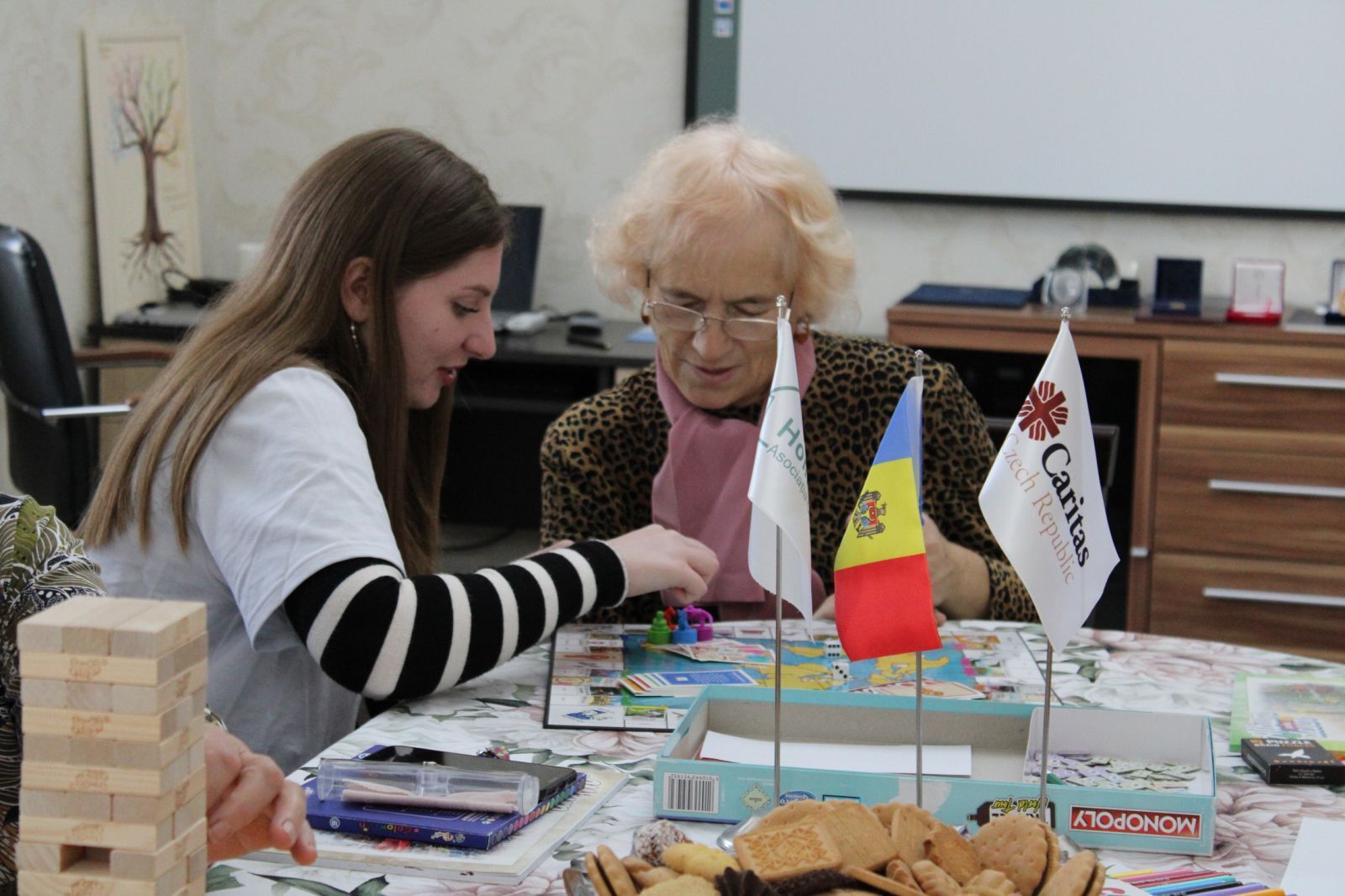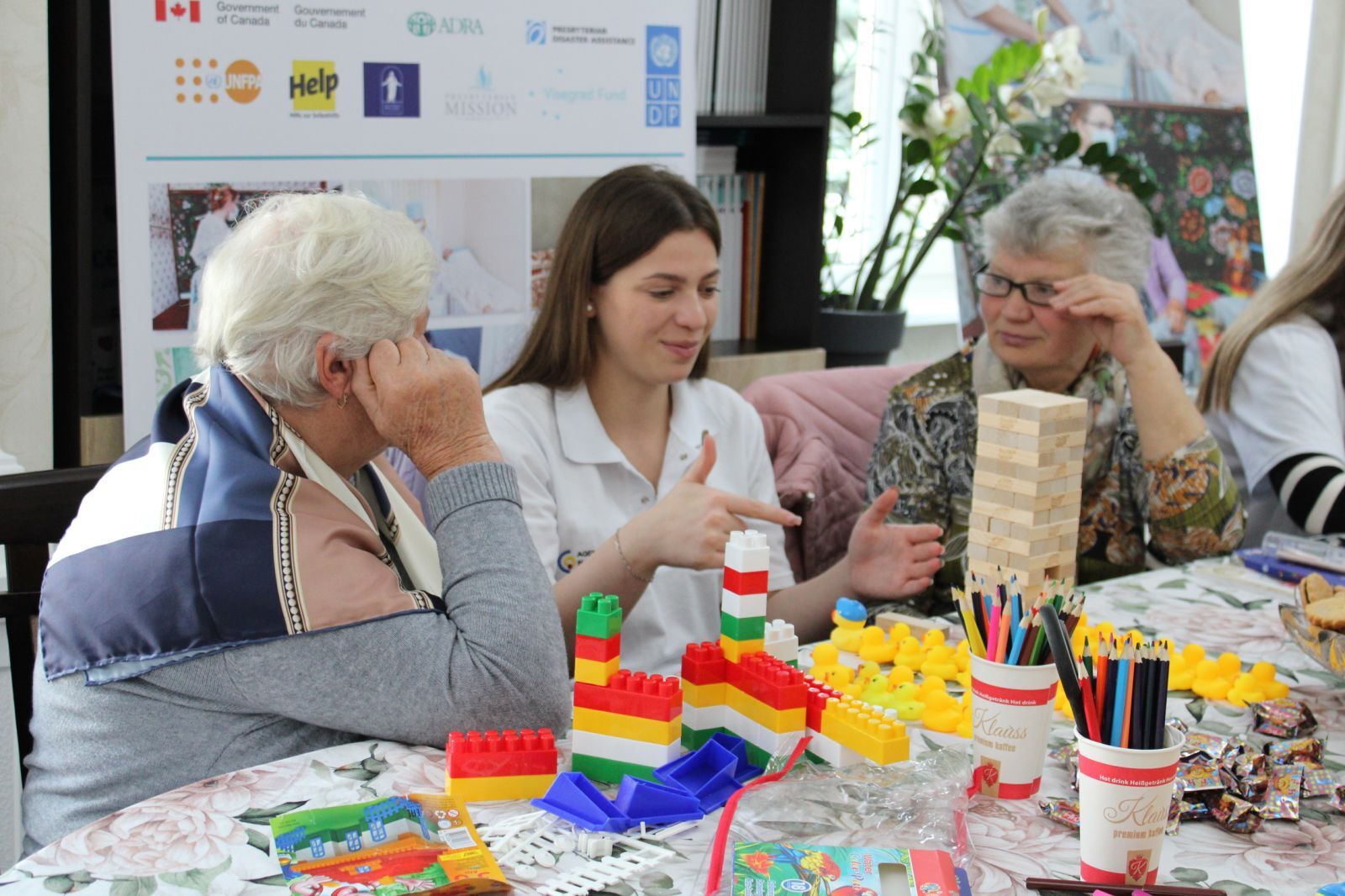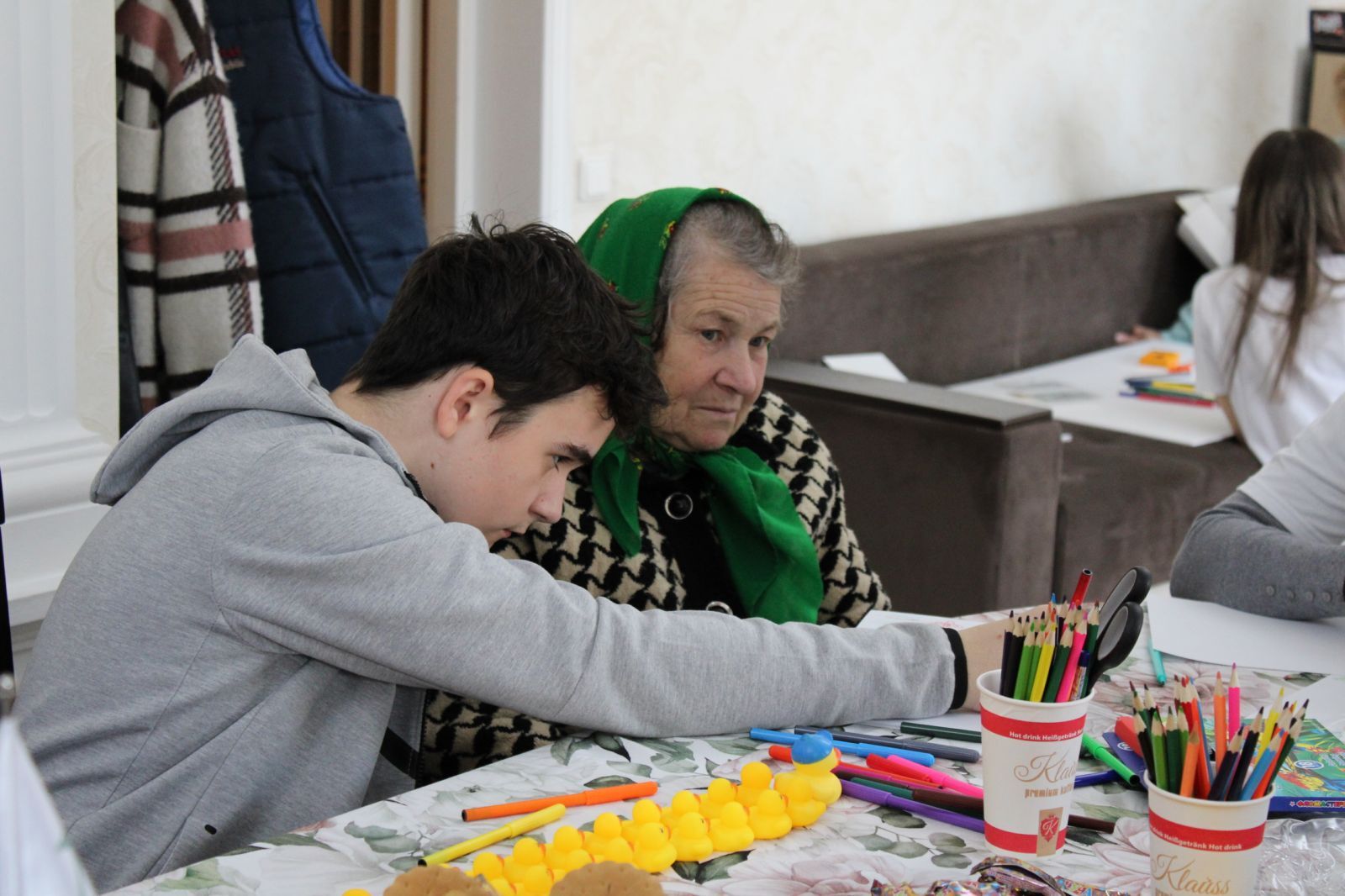In modern society, where age differences can often lead to isolation and a lack of understanding between generations, inter-generational groups become increasingly relevant and necessary. To promote dialogue between generations and support elderly people with diverse needs in developing their skills and improving their quality of life, Caritas Czech Republic, in cooperation with AO Homecare, is developing a new service – Inter-generational Clubs within 5 health and social centres in Moldova.
What do inter-generational groups represent?
The term "inter-generational groups" refers to communities of individuals from multiple generations, such as children, youth, adults, and elderly people. Meetings are organised where members of inter-generational groups engage in activities such as storytelling, poetry, board games, as well as crafts such as glass painting, embroidery, knitting, wood carving, and digital literacy. Common goals bring benefits, including a better understanding of the perspectives and needs of each generation, encouraging communication between different age groups, and promoting mutual inclusion.
These groups, composed of people representing different generations, have the potential to contribute significantly to social cohesion and the improvement of the quality and sustainability of social services in Moldova.
Exploring the benefits of inter-generational groups
One of the main advantages of inter-generational groups is the creation of a space where members can exchange views and better understand the challenges and successes of different stages of life. Young people can benefit from the wisdom and experience of the elderly people, while the elderly people can be inspired and revitalised by the energy and new perspectives of the young.
Inter-generational groups promote open communication and empathy between generations. Regular interaction between members of different ages can help to reduce stereotypes and build an atmosphere of mutual understanding. For example, a teenager working with an elderly person to learn new skills might change their perception of the supposed inflexibility of the older generation.
By spending time together in various activities, group members can get to know each other personally. This can lead to the formation of strong human connections and the understanding that each individual, regardless of age, has a valuable and unique contribution. This is essential for maintaining a harmonious society and preventing social isolation, especially in the case of the elderly people.
This new form of cooperation supports mutual support and contributes to the sustainability of home care in Moldova. Thus, it represents a significant step towards improving social services in the country.
Initiatives with sustainable impact
Inter-generational groups can be the driving force behind initiatives with sustainable impact on communities. Collaboration between generations help identify the real needs of the community and develop initiatives to address them. Social projects, educational activities, and volunteering can be managed more efficiently by involving a wide range of ages.
Although the initiative is still in its early stages of development in Moldova, it is already having a positive impact on local communities. Thanks to our support, 80 young people have become actively involved in community life and joined inter-generational clubs across the country.
These inter-generational meetings will improve the quality of life for both young and elderly people and lead to the development of a strong sense of belonging and involvement in the community. Young people provide support to the elderly people because they often need communication and human presence beside them.
Caritas Czech Republic is continuously focused on strengthening and improving social services in Moldova. We developed 2 new services Inter-generational Clubs and Occupational Therapy and helped to provide telemedicine consultations for people in vulnerable position living in remote locations. In Moldova, we also organised activities to integrate Ukrainian refugees into local communities and promoted civic activism.











